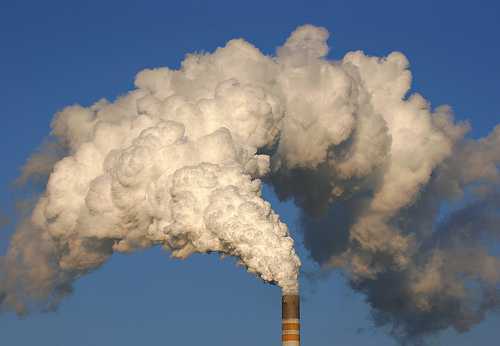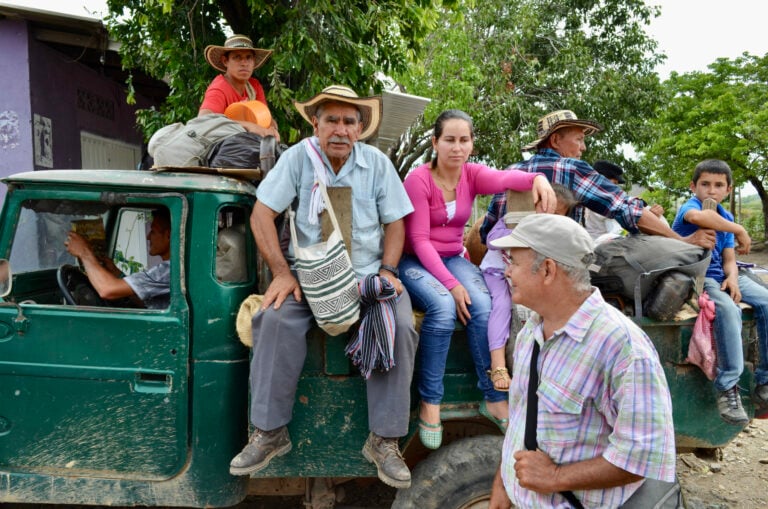
SOMO contribution to the Lower House hearing on the origin of coal for power stations
During a hearing in the Lower House on 18 November 2010, SOMO argued in favour of a structural solution (regulations) for the lack of chain responsibility and transparency among the energy companies operating in the Netherlands. As one of the experts to be heard, SOMO gave its vision on the origin of the coal used by the energy companies in question, based on new study on Sustainability in the Power Sector (Europe, Belgium and the Netherlands). The report on this will be published shortly.
Below the text spoken by SOMO researcher Joseph Wilde:
This past summer, SOMO carried out research into the purchasing policies of the electricity companies operating in the Netherlands. We asked seven companies to provide transparency about the origin of the coal, biomass and uranium they use, and which criteria they apply in purchasing these. The study has shown that there is a wide variety of ways in which the various companies manage their fuel chains, and that the companies in general are still doing too little in terms of making their fuel streams more sustainable and transparent.
Although most companies say that they acknowledge their responsibility for the circumstances in fuel chains, they are still doing too little in concrete terms to realise this responsibility in the coal chain. A number of companies say that they use social and environmental criteria in the selection of coal suppliers, but the implementation remains vague and none of the companies structurally include such criteria in contracts with suppliers. Criteria such as the price and technical quality of the coal are much more important in this context.
Four out of the seven companies do not make any use of independent audits of the coal mines, or did not provide any information on auditing. The companies Dong, E.ON, and Vattenfall do make use of independent audits of coal mines, but only E.ON could provide detailed information on location and process of the audits. Eneco also makes use of independent audits in its fuel chains, but these do not contain any coal.
Three of the seven companies, Dong Energy, RWE/Essent and E.ON provided insight at the country level into the origin of their coal. The other companies did not provide any insight into which countries their coal originates from. Of the companies that did not provide any insight, a number of them indicated that this was confidential information, while a number of the others did not respond to our request. Whatever reasons the latter group had not to provide transparency about the origin of their coal, they cannot, in any case, say that it is impossible to gain insight about this. Because if some companies can do it, why should this be impossible for other companies?
The Lower House is aware that there are serious human rights and environmental problems in the production chains of products on sale in the Netherlands, and that there is little transparency in these chains. In recent months, questions have been asked in the House and about abuses in the garments, hazelnut, cocoa, cotton seed and coal chains. Such abuses also take place in other chains, such as in that of uranium, which is enriched in the Netherlands and used in the nuclear power plant in Borssele. The questions in the House are usually in response to stories about abuses in the media, and are therefore discussed and dealt with in the House in an ad hoc manner. While the large number of cases and the fact that problems are regularly raised by NGOs or the media indicate that there is a structural problem with the implementation of chain responsibility and transparency. The House should therefore also tackle the problem structurally.
An important part of such a structural approach is, of course, continuing to promote the voluntary CSR initiatives of the companies. The Netherlands could also come out more strongly in favour of a stronger supply chain provision in international CSR instruments such as the OECD guidelines for Multinational Corporations, which are currently being revised.
But voluntary initiatives are not enough – the structural tackling of abuses in chains must be based in legislation. The Protect, Respect, Remedy framework of Special Representative John Ruggie can provide direction in this. For example, in order to connect the pillars of the Ruggie framework even better, SOMO proposes including in legislation an obligation to report on social and environmental issues. Such an obligation on corporations makes it possible for governments to flesh out their state duty to protect, while at the same time stimulating the corporate responsibility to respect. This could initially be an obligation applicable to stock-exchange listed companies with a minimum turnover (in order to gain experience), after which the obligation can gradually be expanded to include other business forms. This should result in a level playing field for all businesses, and give consumers the opportunity to make a sustainable and responsible choice.
The Van Dam Motion of 18 November 2009 is a step in the right direction in this respect. Another example is from the United States, where the Dodd-Frank Financial Reform Bill was passed last July. This bill incorporates, among other things, an obligation on companies to indicate whether they use raw materials which originate from the Democratic Republic of Congo. As a result of this legislation, for example, the electronics sector is showing that it is possible to ascertain where raw materials originate, in order to set certain criteria for the use of these raw materials. The Dodd-Frank Bill also requires that energy and mining companies which are registered with the U.S. Securities and Exchange Commission indicate how much they pay to foreign governments and the US for oil, gas and minerals.
Related news
-
Overconsumption of transition minerals will cost us the earthPosted in category:Opinion
 Alejandro GonzálezPublished on:
Alejandro GonzálezPublished on: Alejandro González
Alejandro González -

-


